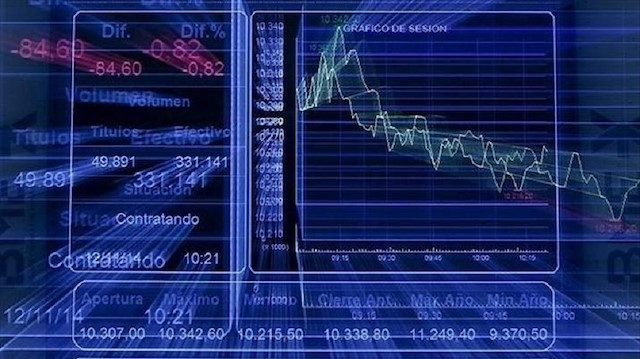
Italy's government bond yields edged higher ahead of industrial output data that will signal the state of the country's economy before Tuesday's deadline for the submission of a revised budget to the European Union.
The data, which is due out at 0900 GMT today, will give an indication of how a showdown between Italy and the EU over the country's budget plans has affected the Italian economy in recent weeks.
It will also give an idea of whether Italy's deficit targets are based on realistic growth assumptions, analysts said. Expectations are for Italian industrial output to fall 0.7 percent versus the previous month.
"We expect a drop this month after a considerable increase last time round, and it will raise questions on what condition the economy is in through all these political issues," said DZ Bank strategist Daniel Lenz.
"It has implications for the government assumptions on growth as well," he said.
Italian 10-year government bond yields were slightly higher at 3.40 percent on Monday and heading towards last week's 10-day high of 3.461 percent.
The closely-watched spread over German Bunds widened to 301 basis points.
Short-dated Italian debt yields also rose by about a basis point, though these are marginal moves in the context of recent volatility.
Italy has been in a showdown with Brussels over its spending plans for the coming years, and last week Economy Minister Giovanni Tria said the country will stand by the main pillars of its fiscal plan despite the EU Commissions' request to revise it.
"We are doubtful that the government has political capital to compromise, which makes displays of populist bravado more likely to materialise," Mizuho strategists said in a note.
Against this background, the demand for safe assets remained strong.
The yield on 10-year German Bunds, seen as one of the safest and most liquid assets in the world, dropped to a fresh 10-day low of 0.39 percent, having on Friday slid the most in seven weeks on souring risk sentiment.
The euro is also being hit by the uncertainty, falling to its lowest since June 2017 on Monday at $1.13.
Uncertainty over a Brexit deal between Britain and the EU was also fuelling demand for safer assets and hitting sterling and the euro against the dollar.
Last week, Jo Johnson, the younger brother of former Foreign Secretary Boris, resigned from Prime Minister Theresa May's government over her "delusional" Brexit plans and called for another referendum on Britain's EU membership.






